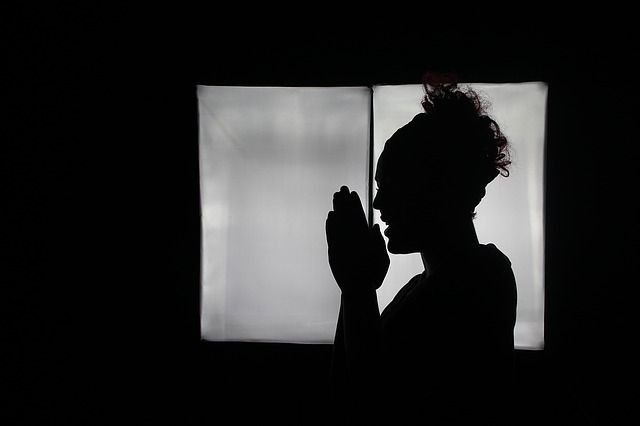Spiritual Activities May Lessen Severe Grief In Parents Who Experience Death Of A Child

The death of a child is an overwhelming, painful, and traumatic experience that can have long-term effects on parents. While it's an unfortunately common occurrence, especially in the context of gun violence, few studies have examined the mental health states of grieving moms and dads.
"Losing a child and the resulting stress disrupts parents' mental and physical health, and can occur during the early phase of grieving and continue for years afterward," Dr. Dawn M. Hawthorne, first author of the study and an assistant professor in FAU's College of Nursing, said in a statement. "We wanted to better understand if spiritual coping strategies would be helpful to parents at this time of very high stress."
Hawthorne and her colleagues at Christine E. Lynn College of Nursing at Florida Atlantic University evaluated the relationship between spiritual and religious coping strategies — things many people have used to bring warmth and meaning into their daily lives — as well as grief and mental illnesses like depression and post-traumatic stress disorder (PTSD). They also measured parents' personal growth at one and three months after they lost a child in a neonatal intensive care unit or pediatric intensive care unit.
The results suggest that parents’ religious and spiritual activities, such as self-reflection and confiding in family and friends, helped reduce their symptoms of grief. For fathers, religious activities helped lessen the pain at one month, but not at three months. And bereaved mothers felt better after non-religious activities meant to relieve feelings of hopelessness, sadness and loneliness. Non-religious activities helped mothers to connect with their inner self, to acknowledge their strengths, and to ultimately find peace, the authors said.
These findings suggest religion may help fathers to cope with their loss, while spirituality is more helpful for mothers.
"If so," Hawthorne said, "then use of both religious and spiritual activities may help fathers move through their grieving process faster, allowing them to return to their previous routines such as getting back to work earlier than bereaved mothers."
She added that the difference could be in their needs, that "bereaved mothers need to talk more about the death of their child than bereaved fathers, whereas bereaved fathers were found to cope with their grief by isolating themselves from family and friends." Previous studies have shown that religion doesn't always relieve stress, and it can sometimes exacerbate it. It could also be religious mothers are angry with God, and they may not take to related activities until that feeling has diminished months later, Hawthorne said.
Whatever the case, the study shows that overall, self-reflection, confiding in others, and cultivating friendships can be a great source of comfort during a difficult time.
Source: Hawthorne D, Youngblut J, Brooten D. Parent Spirituality, Grief, and Mental Health at 1 and 3 Months After Their Infant's/Child's Death in an Intensive Care Unit. Journal of Pediatric Nursing. 2016.



























